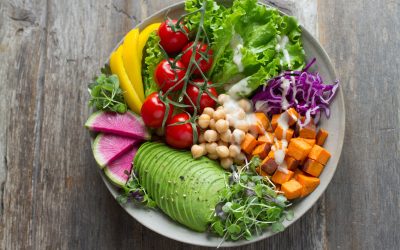What can impact vaginal & vulval health?
Most females experience at least one episode of bacterial vaginosis or vaginal candida (commonly called ‘thrush’ or ‘yeast infection’) within their lifetime. And of those, unfortunately, many can experience issues of recurrence. Back and forward to the chemist or GP, with some treatments not lasting long, or becoming completely ineffective.
So, how do you finally address & resolve this?
With any symptoms, the absolute first step is seeing your Medical GP/Sexual health clinic for a diagnosis. But for some, they’ve done this countless times, and still live without resolution.
If you’re to address the recurrence, and finally get off the monthly thrush or BV train, then the approach needs to be holistic.
Firstly, the vaginal microbiome must be considered. A healthy vagina has an abundance of healthy lactobacilli bacteria and a low pH range of 3.6-4.5. There are different microbes that can overgrow, leading to the symptoms.
It’s possible to test the vaginal microbiome (at-home personal self-testing available via naturopathic consultation). This must be performed to know exactly what microbes we are dealing with.
Next, a comprehensive and holistic approach needs to be considered, to explore what may be triggering and increasing the risk of recurrence.
- Hormones –Ever noticed symptoms are better or worse at a particular time of the month? The cyclic hormonal changes can impact when you’re more at risk. Typically (but not always) candida is more present when oestrogen is higher, and BV is at lower oestrogen times of the month. Note when in your cycle you experience symptoms, and what exactly the symptoms are.
- Nutrition – Overall poor nutrition choices can disrupt healthy vaginal microbiomes. Plus, blood sugar imbalances can increase the risk of candida recurrence.
- Sexual practices – A large and very personal topic, but as certain practices can translocate bacteria, or create changes in pH, it’s an important piece of the puzzle to consider.
- Gut microbiome – While the microbiomes that are in differing locations in the body have vastly different microbial makeups, if there is poor gut health, this can translate down to affecting the vaginal microbiome. The gut microbiome needs to be assessed as an overall health picture.
- Underwear & clothing fabrics – Synthetic fabrics, such as nylon, lycra, spandex, can harbour bacteria and be linked to recurrence issues. Instead choosing natural fibres, such as bamboo or organic cotton and throwing away old underwear.
- Hygiene practices – Again, a very large topic relating to toilet practices, sanitary items, handwashing, showering & bathing, soaps, douching, and more. Remember, the vagina is self-cleaning, and water is sufficient for vulval cleaning. Often less is more!
- Medications – Prescribed medications, such as antibiotics can perpetuate the cycle in both BV & thrush.
- Lifestyle choices – Smoking, alcohol intake and stress can all impact the vaginal microbiome.
- Infections – Any infection, whether it be general in nature or specific to the vagina or pelvis, creates changes to the immune system makeup and can imbalance the microbiome leading to symptoms.
Unfortunately, there is a stigma surrounding vaginal health, so this topic is not openly discussed nearly enough. This may lead to women tolerating unpleasant symptoms, potentially impacting their intimate life, and sadly some women experiencing embarrassment or shame.
If this is you, you don’t have to suffer alone! There is so much that we can do get you out of this cycle so you can feel like yourself again. Book a free Discovery Call with a women’s health naturopath to find out how I can best support you and your health.
A little about me: I am a fertility naturopath on the Gold Coast and specialise in all things women’s health and fertility. Appointments are available for our clinic rooms in Burleigh Heads or online Australia-wide.
References:




